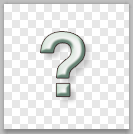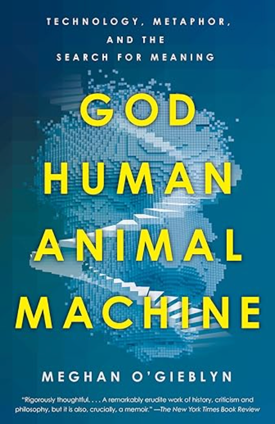Asking questions is more important than finding answers -- why?
 This week, as I was riding my bike to work and listening to Robert Jordan's The Wheel of Time: The Eye of the World (a classic fantasy/adventure book), one of the characters -- was it Bayle Domon, the pirate? for the life of me, I can't remember, nor can I find it, but he says something like this to Rand, one of the protagonists:
This week, as I was riding my bike to work and listening to Robert Jordan's The Wheel of Time: The Eye of the World (a classic fantasy/adventure book), one of the characters -- was it Bayle Domon, the pirate? for the life of me, I can't remember, nor can I find it, but he says something like this to Rand, one of the protagonists:
Sometimes asking questions is more important than finding answers.
This sentence rang instantly true in my mind. I have been trying to figure out just why.
Asking questions seems to drive creativity. It cultivates an open mind. The questions we ask lead us to new knowledge. Questions drive us to answers we never thought to consider until we asked the question.
Of course one cannot simply ask question after question, without giving any thought to answers. Such a method seems insincere in the question-asking. But rather questions lead naturally to a consideration of answers, which lead to more questions, which lead to more answers, which lead to more questions. The two move back and forth, like a lumberjack's saw at an old oak tree, sawing through the rings with each back and forth motion until you reach the core.
Not all the questions may be worth exploring, but for every dozen, there's a golden one that causes us to wonder. The question moves us into an idea or answer we hadn't yet explored. The golden question cuts through several rings at once. It takes a bit of meandering until we find the question, but once found, it holds us with wonder.
Satisfaction from questions
Is it really the answer, often unattainable, that satisfies, or is it the question itself that is the appeal?
To come back to Captain Domon, he says:
No, lad, it no be the treasure that makes for seeing the world. If you find yourself a fistful of gold, or some dead king's jewels, all well and good, but it be the strangeness you see that pulls you to the next horizon (p.339, The Eye of the World).
In the same way, questions are ships that sail us into unfamiliar territory. It's the strangeness of the question that compels us forward, not necessarily the answers we find.
Not every question needs a meaningful answer. Part of the mystery of life is that answers are so slippery, so frequently absent. If answers were straightforward, life would hold little interest.
Dangerous territory?
When explored in the abstract, the idea of asking questions seems benign, but as soon as you go down this path, it leads you to a mentality of questioning, and that mentality can be uncomforting. Obedience to authority, submission to the "right way" of doing things, conformity to a specific morality -- all of this behavior can rattle and crumble when you start questioning everything around you. Questions can be like earthquakes, making people who thought they walked on stable ground suddenly look for shelter.
Despite discouraging environments, our very nature suggests we should question. Humans are, at the core, introspective and curious. It's what separates us from the animals. Our intellect is not merely a cleverness to build tools, but an intellect that comes from the questions we ask. If it defines our nature, why should we shy away from asking questions?
Questions and ignorance
When we start asking questions, we often come to realize how little we know. The most mundane, taken-for-granted topic can turn upside down with the right question. What we frequently forget is how little we know. It's only when we start asking questions that we recognize our lack of knowledge. The most basic, almost fact-like idea can seem perplexing with the right question.
Interact with any child who starts asking you questions about simple things, and it becomes apparent we don't have answers. We don't have answers, yet we forget that we lack the answers. It's not until the child asks the questions that we realize we don't have the knowledge; we have only learned to act and operate with assumptions and seemingly obvious but ultimately missing information. Our acceptance of a life without answers is a learned rather than innate behavior.
Methods of questioning
Asking questions is a good strategy, but is there a methodology to questions that would yield better insight? You can develop an Aristotelian method for asking questions, comparing and contrasting, probing definitions, looking toward analogies, asking questions about classification, and such (see Aristotle's Rhetoric). Following a heuristic for investigation like this might provide a strategic starting point for analyzing any topic.
The journalists's handy toolbelt of who-when-what-why-where-how questions also provides a powerfully simple way to dig into a topic. But even the random questions, the ones that seem to come from no method, often lead to interesting insights. One doesn't need a PhD in philosophy to ask a question. A five-year-old can ask as good a question as a tenured philosophy professor.
Writing and questions
I once had a discussion with someone thinking about starting a blog. He said he had counted up all the ideas he could write about, and calculated that after 28 posts, he would run out of things to say. The secret to writing is to ask questions. As long as you can ask questions, and reflect upon answers, you can never have enough space to write all your thoughts.
Writing is merely a tool for thought. It is a way to extend fuzzy ideas into intelligent constructions, building up a framework of ideas one sentence at a time. In writing we see what we think, and in seeing, we think about what we see. The two activities build on each other.
If writing is an exercise in thought, what method does thought itself follow? If you break it down, we often think in terms of questions and answers. Questions form the basis of our thoughts. We write out the answers, and generate new questions from the words we've written.
Technical writers and questions
Of all professions, should not a technical writer be full of questions? We must unravel how things work, not only for us, but for users in different situations. The more questions a technical writer asks, the more thorough the documentation will be.
In Ginny Redish's Letting Go of the Words, Ginny encourages a question-and-answer dialectic with an imagined reader. What questions might a reader have? Think of the questions, and seek out the answers. It's a brilliant strategy, a conversational game of the mind. Questions drive content. The content leads to more questions.
Swimming in a sea of questions, the technical writer's job is anything but boring. The technical writer explores the interface with experiments and tests, exploring by trial and error to see what answers each question holds. A technical writer is a scuba diver under water, curious about each shape and color and movement ahead, curiosity and wonder propeling the diver forward.
Of all the tools a technical writer uses -- graphical tools, help authoring tools, video recording tools, page layout tools -- the most powerful tool is the question.
About Tom Johnson

I'm an API technical writer based in the Seattle area. On this blog, I write about topics related to technical writing and communication — such as software documentation, API documentation, AI, information architecture, content strategy, writing processes, plain language, tech comm careers, and more. Check out my API documentation course if you're looking for more info about documenting APIs. Or see my posts on AI and AI course section for more on the latest in AI and tech comm.
If you're a technical writer and want to keep on top of the latest trends in the tech comm, be sure to subscribe to email updates below. You can also learn more about me or contact me. Finally, note that the opinions I express on my blog are my own points of view, not that of my employer.

